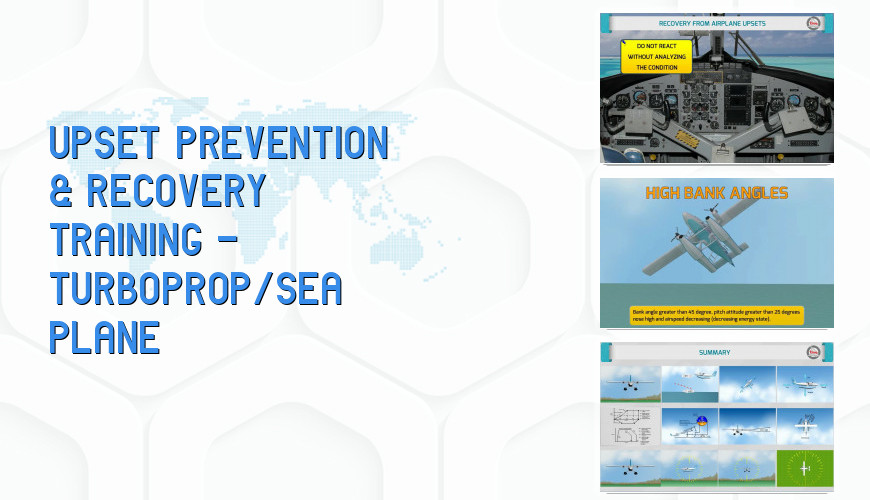
Course Information
Upset Recovery Online Course starts with definitions of Upset Condition, Turbulance, Clear Air Turbulance, Mountain Wave Turbulance, Windsher, Wake Turbulance, Airplane Icing, Angle of Attack, Camber, Wing Dihedral, Energy State, Flight Path, Flight Management Systems, Autoflight Systems, Stability, Stall, Pitch, Roll and Yaw. The course then focuses on the Causes of Upset Conditions which are Enviromentally Induced Upset, System Anomalies Induced Upsets, Pilot Induced Upsets and also Combination of Cause Factors & Aerodynamic Factors Leading to Upset Conditions. The Recovery from Airplane Upsets section of the course addresses Stall Recovery, Nose High/Low, Wing Level Recovery Techniques, Nose High/Low Steep Bank Angle Recovery Techniques. A short summary is presented for you at the end of the course.
Content of the Course
| Slide | 76 | Duration | 00:40:11 | Exam | No |
|---|
- INTRODUCTION
- Definitions – Upset Condition
- Turbulance
- Clear Air Turbulance (CAT)
- Mountain Wave Turbulance
- Windsher
- Wake Turbulence
- Airplane Icing
- Angle of Attack
- Camber
- Wing Dihedral
- Energy State
- Flight Path
- Flight Management Systems
- Autoflight Systems
- Stability
- Stall
- Pitch
- Roll
- Yaw
- Program Warnings
- CAUSES OF UPSET CONDITIONS
- Environmentally Induced Upset
- System Anomalies Induced Upsets
- Pilot Induced Upsets
- Combinatıon of Cause Factors
- Aerodynamic Factors Leading to Upset Conditions
- Load Factors
- Angle of Attack and Stall
- Lateral and Directional Aerodynamic Considerations
- Wing Dihedral Effects
- Pilot-Commanded Sideslip
- RECOVERY FROM AIRPLANE UPSETS
- Stall Recovery
- Nose High, Wing Level Recovery Techniques
- Nose Low, Wing Level Recovery Techniques
- Nose High, Steep Bank Angle Recovery Techniques
- Nose Low, Steep Bank Angle Recovery Techniques
- SUMMARY

